Learn How To Paint Vinyl Siding: a Step-by-Step Guide

Are you looking to add a little bit of curb appeal to your home by painting your vinyl siding? You’re in luck! Learn how to paint vinyl siding like a pro without spending a fortune. Painting polyvinyl cladding is a relatively easy process that can be completed over a weekend.
Then again, if you’re new to DIY or don’t have a lot of experience with this pastime, getting the job done right can be tough. That’s where this article comes in. It will cover everything from what painting techniques to use to how to prep vinyl siding for paint and seal your vinyl before painting. Simply follow these tips, and your DIY project will be a great success.
What is Vinyl Siding?
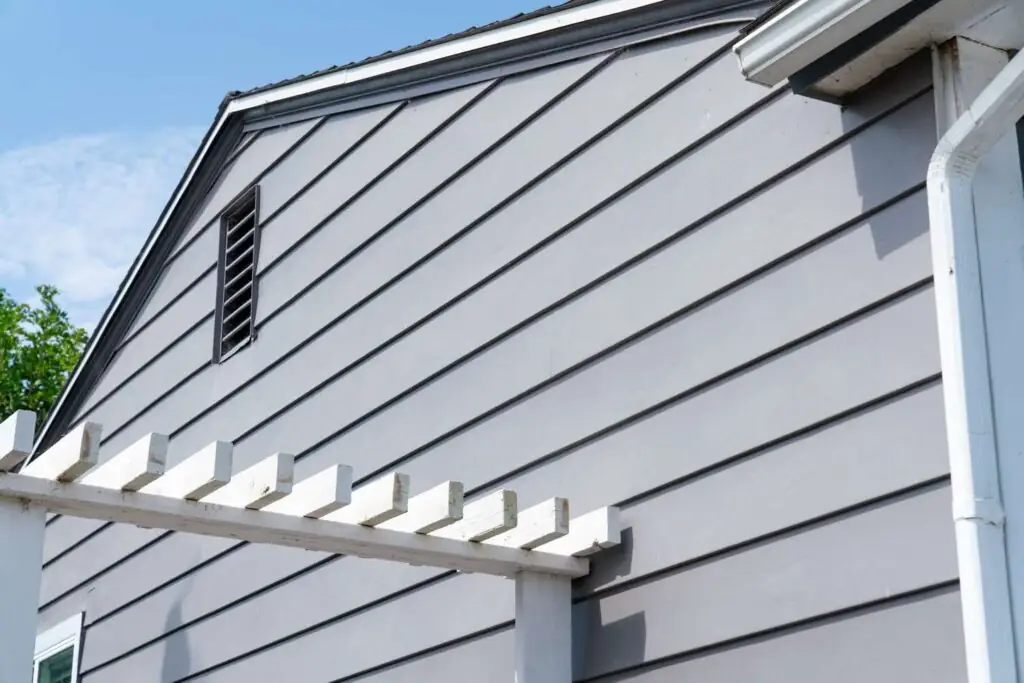
It is a type of siding that is made from PVC or polyvinyl chloride. PVC is a plastic material that has numerous applications that range from covering the exterior of homes to making pipes, doors, and windows. Furthermore, it is a popular choice for many homeowners because it is durable, low maintenance, and easy to install. Deciding on PVC, you are sure to find the ideal look for your home because of the extremely wide variety of styles and colors this material offers.
How to Get Paint off Your Vinyl Siding
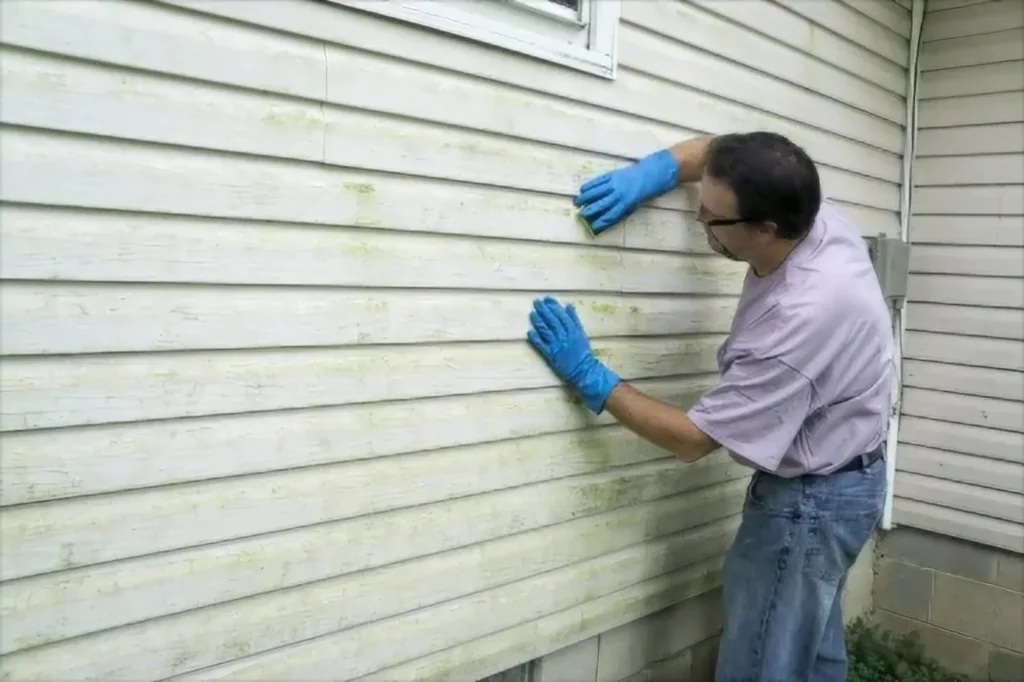
Alas, stains are inevitable, and the reasons why you might have to deal with them are really numerous. Maybe you were doing a home improvement project and accidentally stained your polyvinyl cladding. Or it might be that your kids were using your house as a canvas for their latest art project.
Whatever the reason, you need to know how to remove paint from vinyl siding without damaging it. Fortunately, it’s not as challenging as you may expect. You can easily clean your PVC cladding with a little elbow grease and the right tools.
Rub It Off
Here’s what you’ll need:
- putty knife
- soft cloth
- bucket
- Mild dish soap
- garden hose
Start by using the putty knife to scrape off as much paint as possible. Be careful not to scratch anything. Next, soak the soft cloth in soapy water and scrub the affected area.
If the stain is still not coming off, you can try using a little more elbow grease. If that doesn’t work, you can try using a power washer on a low setting. Just be careful not to damage the exterior.
Once you’ve removed the stain, rinse the area with the garden hose. You might need to repeat the process a few times to remove all traces of the stain.
And that’s it! With some time and effort, you will be able to remove a stain from the exterior of your house.
Use Chemicals
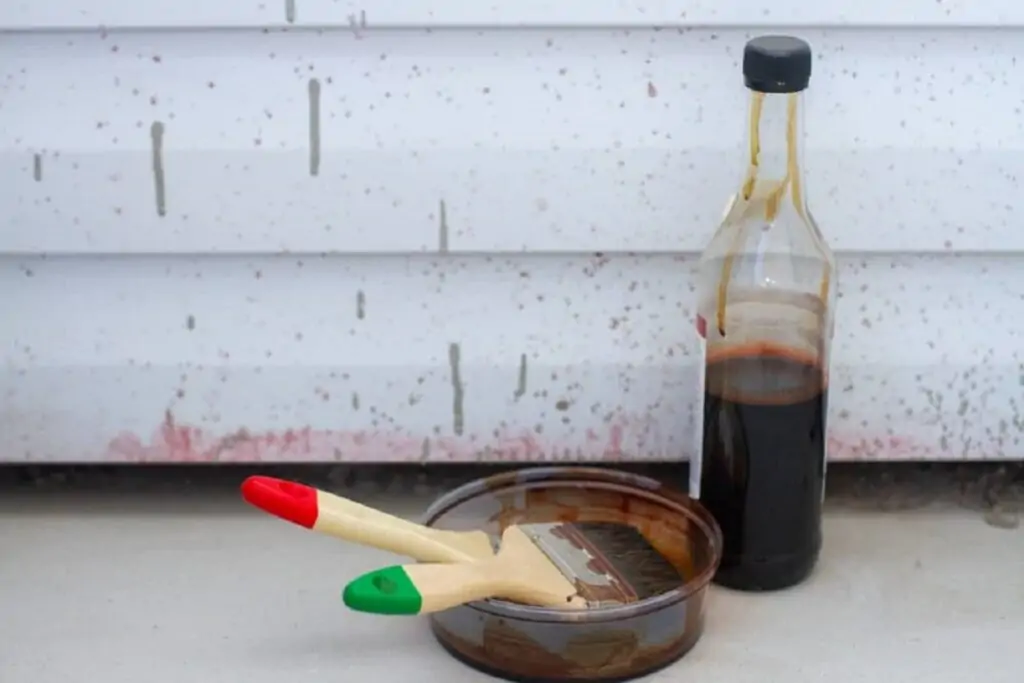
Spray stains can sometimes be extremely obstinate, and merely rubbing them will not be enough. Still, if you don’t know how to remove spray paint from vinyl siding, there is no need to worry. The good news is there are really several ways to remove a spray stain from the polyvinyl cladding. The best of them is to either use an enzyme cleaner or decide on a degreaser. Still, when working with chemicals, it is always recommended that you test the cleaner you are going to use on a small area first.
To remove a spray stain with an enzyme cleaner:
- Mix 1 cup of white vinegar and ¼ cup of ammonia in a large bucket.
- Pour the mixture over the stained area and let it sit for 30 minutes.
- Use a scrub brush to clean the surface, and then rinse it with water.
To remove spray stains with a degreaser:
- Mix 1 gallon of mineral spirits (or another petroleum-based solvent) with two tablespoons of sodium hydroxide (caustic soda) or benzalkonium chloride (Lysol).
- Pour the solution over the stained area and wait until it has soaked into the paint.
- Scrub hard with a brush to loosen the layers of color.
- Pour water over the area and scrub until all of the solvents are gone.
Preparing Your Home for the Painting Project
Preparation is the key when it comes to painting – if you don’t take the necessary steps in advance, your painting job will suffer in a number of ways. Therefore, make sure to closely follow instructions on how to paint vinyl siding: both before and after the actual painting, there are some things that you should not fail to do.
Here are the steps for painting:
1. Clean the Exterior of Your House Thoroughly
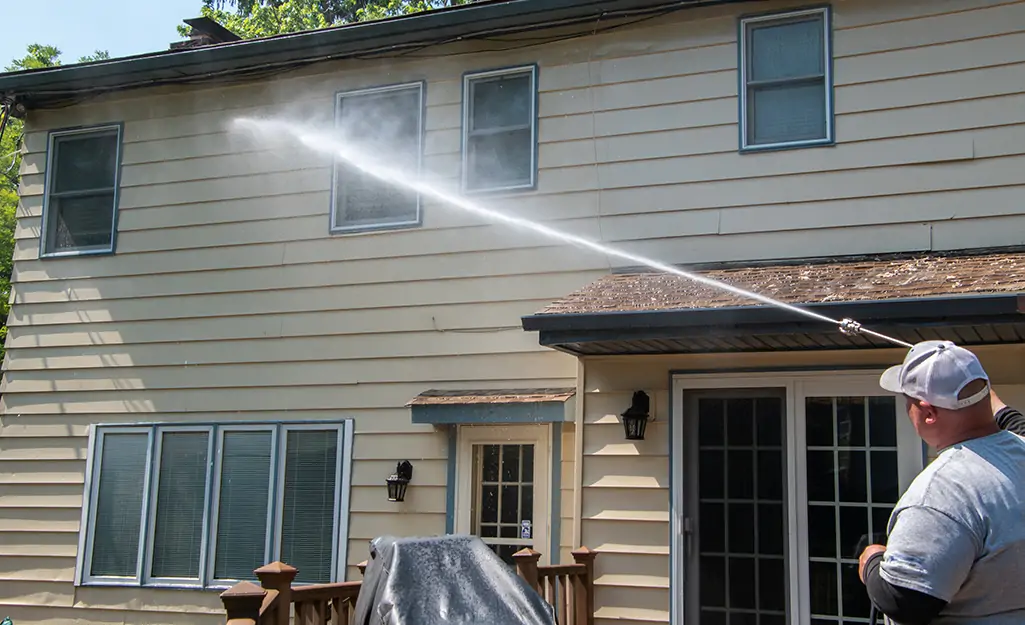
Remove any dirt, dust, or leaves that may be hiding damage to the exterior finish. Pay particular attention to areas around windows and doors – these areas will often see the most wear and tear from wind and weather conditions. You can use a power washer or a garden hose with a nozzle attachment to remove any dirt, dust, or grime.
2. Repair Any Holes or Tears in the Exterior Finish
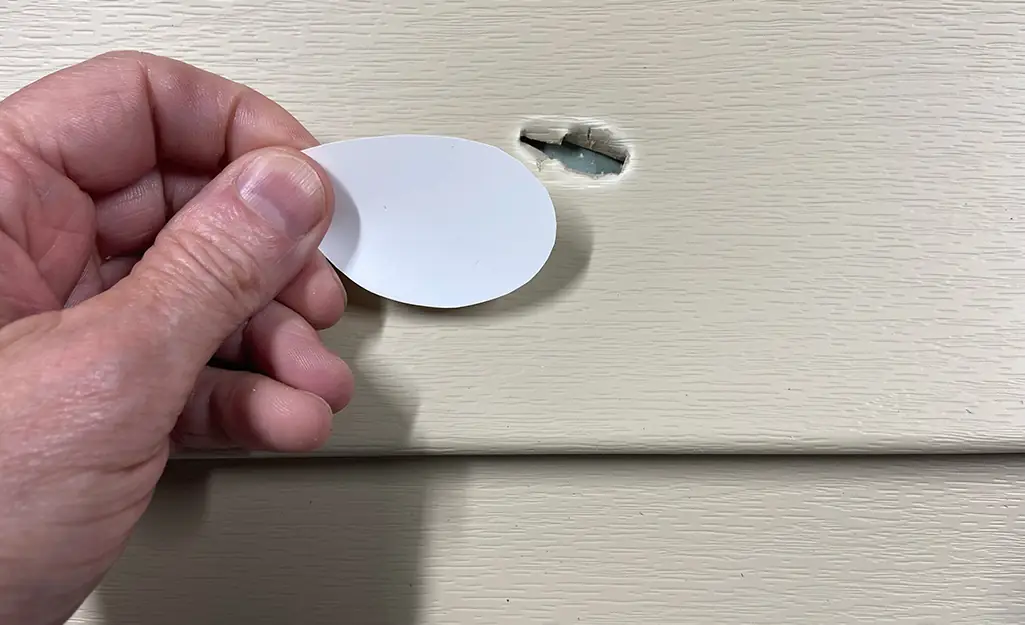
This includes anything from small nicks and scratches to larger tears that go beyond what can be repaired with a patch kit. For best results, seal any cracks or gaps with a coat of silicone caulk or an epoxy sealant. Take your time, and don’t be in a hurry: the importance of this step cannot be overstated.
3. Clear Away any Obstructions
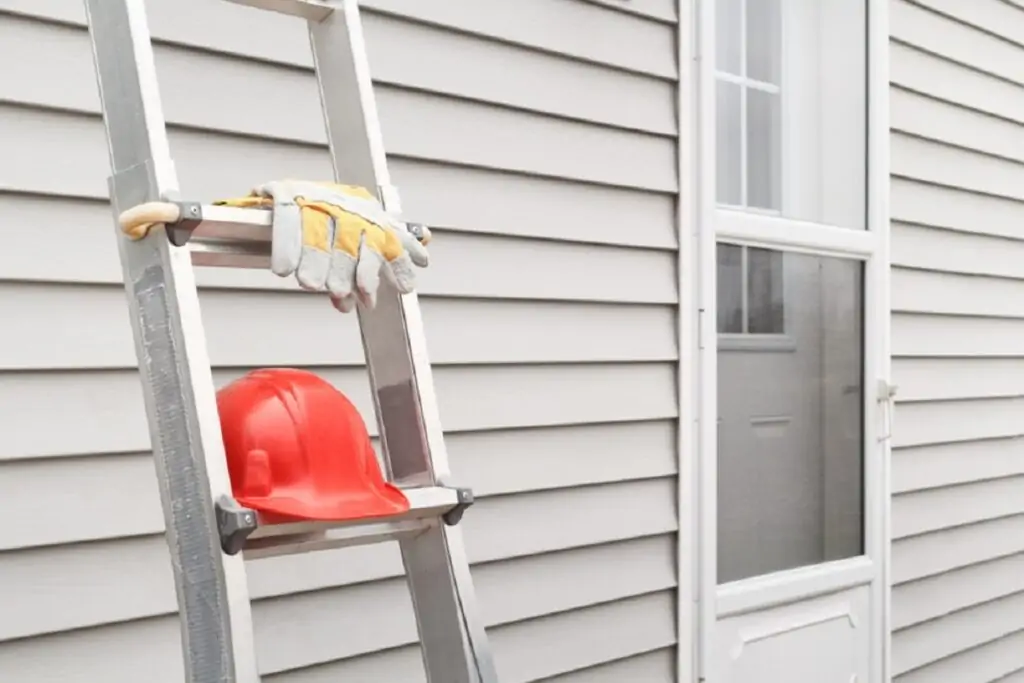
If there are large items that stand in your way inside or outside of your home, consider having them removed before painting begins. It is important that you have easy access to any place around the perimeter of your house.
4. Choose Your Color
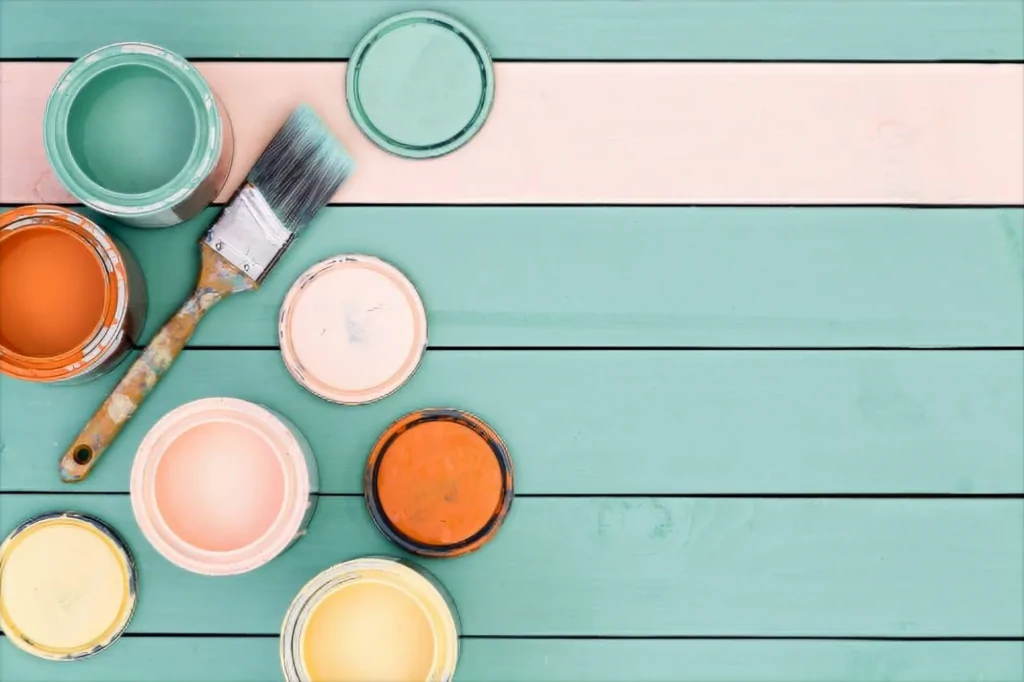
Next, select the color you want to use. Many paints are available in premixed cans. Make sure to choose a color that matches your house’s trim and window frames.
5. Apply the First Coat
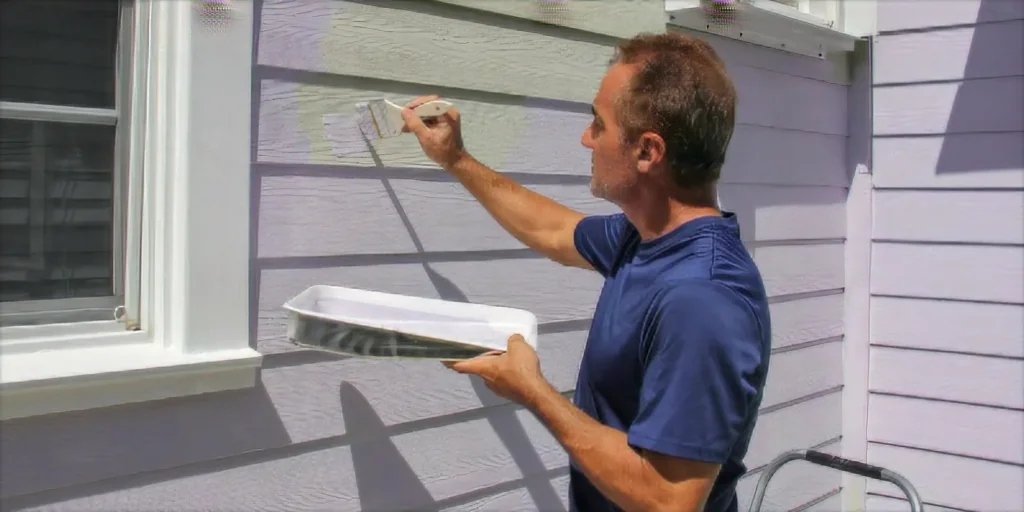
Once you’ve chosen your color, apply a thin coat of it using a brush or roller. Make sure to cover all of the grooves on the surface of the cladding.
6. Let the First Coat Dry Completely Before Applying a Second Coat
Wait at least 24 hours between coats to ensure that each layer has had time to dry thoroughly before painting over it again.
7. Repeat Steps 5 and 6
You need to repeat step number 5 and 6 until all coats of coloring have been applied and the desired shade has been achieved. Be sure to follow all safety guidelines when painting – always wear protective gear, including goggles, gloves, and face mask, and work in a well-ventilated area if possible!
Frequently Asked Questions
Whether you want a quick upgrade on the exterior of your home or are trying to save money by painting it yourself, polyvinyl cladding is a great option. While your DIY project will take some effort and planning, the cost savings and satisfaction from seeing your home take shape will be well worth it. Starting with the surface preparation first, here are the answers to the most common questions.:
Yes, it is! What’s more, this DIY project is relatively easy to carry out. However, before you begin, there are a few things to keep in mind. We have mentioned these steps above in this article.
Yes, it is possible to color the polyvinyl cladding of a mobile home. You can accomplish this by using color sprayers, rollers, or paintbrushes. Rollers or brushes are often recommended over sprayers because the exterior may feature textures that don’t work so well with sprayers.
Yes, you can paint the vinyl cladding exterior with a brush if it is in good condition and does not have major damage. However, if the polyvinyl cladding is severely damaged or has major cracks, then you will need to hire a professional. Ultimately, it will help you save both time and money.
If you want to paint vinyl siding and cost is the main concern, here are the figures you need to keep in mind. The rough estimate of exterior painting can vary from $1 to $3 a square foot, depending on the labor, materials, and prep work required. The total cost of painting can range from $1,500 to $5,000, depending on the size of your home. Therefore, if you are planning to do such a venture, make sure you have the right budget available.
Painting the polyvinyl cladding in a darker color will retain more heat, which may cause warping and even result in premature deterioration of the siding. Therefore, it is often recommended that you color the siding in a color that either matches its current shade or is a bit lighter.
Conclusion
Painting polyvinyl cladding can be a daunting task, but with the right tips and tricks, it can be a simple and straightforward process. So, now that you know how to paint your vinyl siding, this DIY project no longer seems daunting. Grab some supplies, and let’s get started!